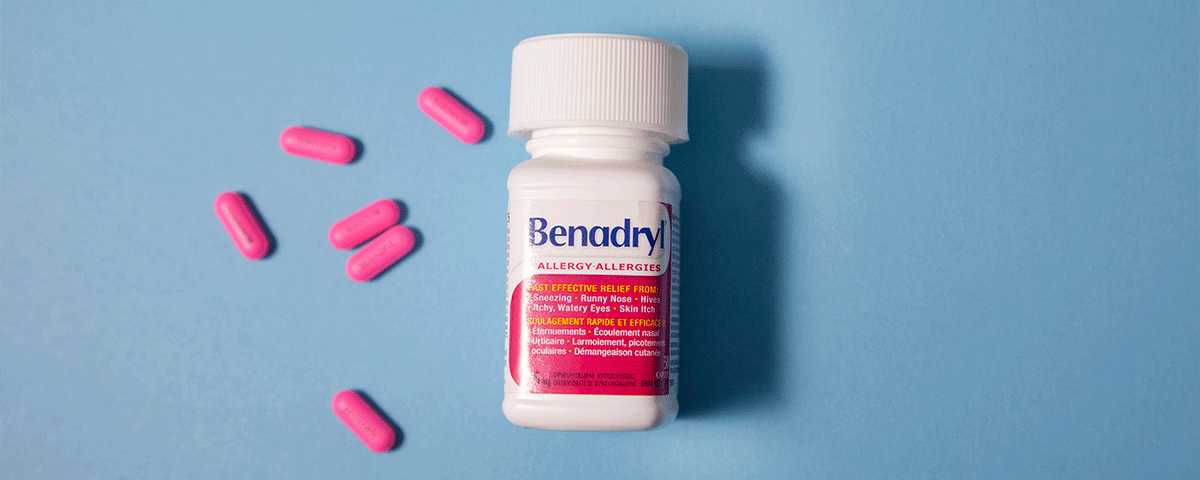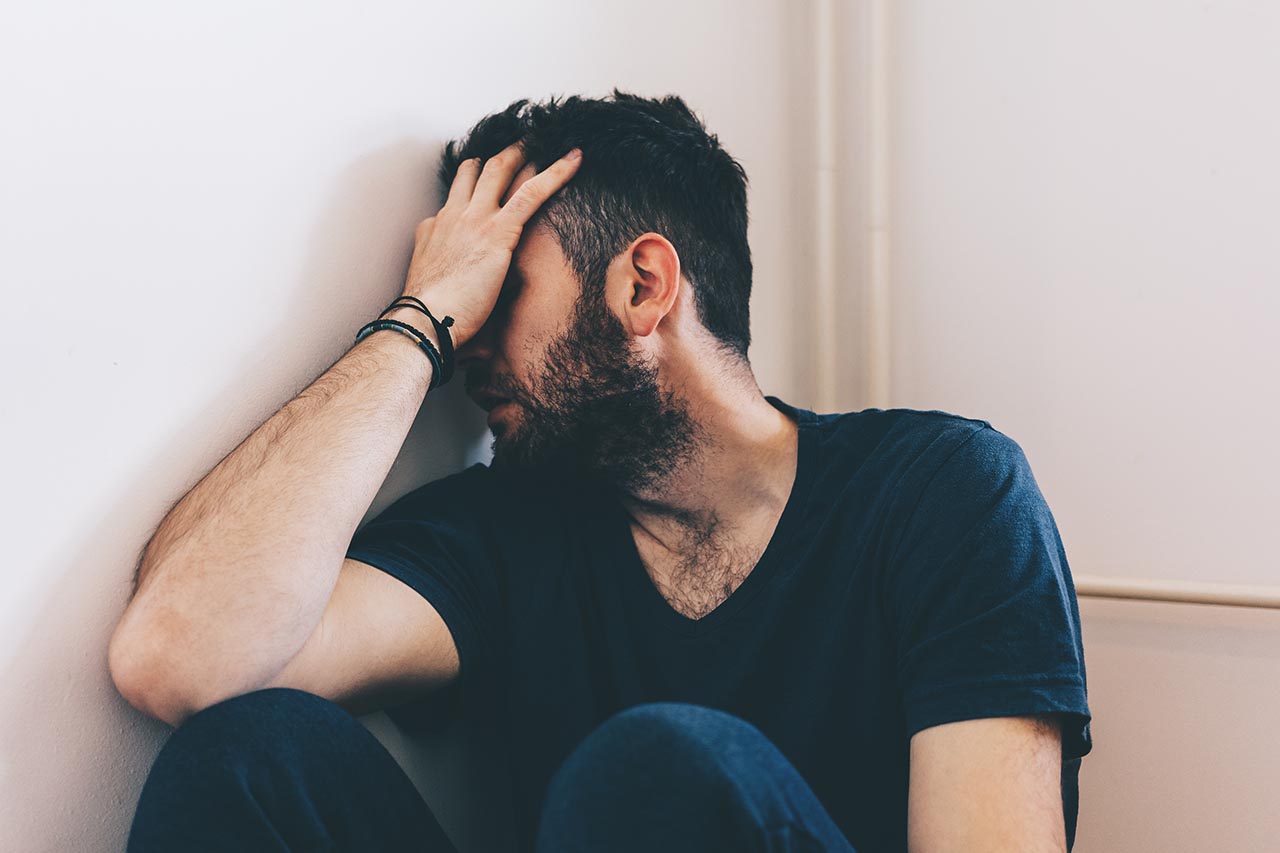Dealing with a stuffy nose, uncontrollable sneezing, and red, itchy eyes can be frustrating.
The moment the season changes or the rain is kicked up a notch, your allergies may flare up. Thankfully, there is a range of over-the-counter (OTC) drugs like Benadryl that can bring you the one thing you want: relief. Unfortunately, our Banyan rehab in Gilman is aware that people underestimate the dangers of Benadryl and often combine it with other substances, both accidentally and purposely. Alcohol is a particularly common substance that people often mix Benadryl with. But can you mix Benadryl and alcohol? What happens if you do?
What Is Benadryl?
Benadryl is the brand name for an antihistamine called diphenhydramine. An antihistamine is a drug that blocks the reaction of a compound called histamine that the body naturally produces when exposed to allergens. The immune system responds to allergens with histamine, which is the reason behind why you get a stuffy nose, itchy eyes, rash, and other symptoms when you come across something you’re allergic to. Antihistamines like Benadryl block the body’s responses to allergens, alleviating symptoms.
Benadryl is an over-the-counter drug, meaning you can purchase it in most drug stores without a prescription. Because of its easy accessibility, many people believe that it’s entirely harmless; however, Benadryl is a strong drug that has contributed to an alarming rate of overdoses in young teens and adults in recent years. This drug can produce adverse side effects when taken in high doses or mixed with other substances.
Some common side effects of Benadryl include:
- Drowsiness
- Dizziness
- Constipation
- Stomach pains
- Blurred vision
- Dry mouth, nose, or throat
- Lack of coordination
- Loss of appetite
- Difficulties urinating
What Happens if You Mix Benadryl and Alcohol?
So, can you mix Benadryl and alcohol? The answer is a resounding no. Although Benadryl doesn’t cause liver damage as alcohol does, both are central nervous system (CNS) depressants, meaning their combined impact can produce heightened side effects. CNS depressants work by depressing or relaxing the central nervous system, causing functions such as breathing to slow down. A Benadryl and alcohol interaction can lead to respiratory depression and prevent the brain and heart from receiving the amount of oxygen they need to work properly.
- Extreme sedation
- Drowsiness
- Loss of consciousness
- Coma
- Dehydration
- Impairment in learning and memory
- Increased risk of dementia
When older adults mix alcohol and Benadryl, they are also at a higher risk of experiencing severe symptoms like overdose and respiratory depression because aging slows the body’s ability to break down alcohol. This means alcohol will last longer in the body of an older adult compared to someone younger. Both alcohol and Benadryl are also addictive, and many people abuse this combination on purpose to experience severe sedation. Eventually, a person engaging in this form of substance use may need to get treatment at a facility like our alcohol rehab in Illinois to get sober.
Can You Overdose on Benadryl and Alcohol?
Yes, you can overdose on Benadryl and alcohol. Overdose is a common risk of an alcohol and Benadryl interaction in which a person takes a large dose. Even though it’s a commonly used OTC drug, Benadryl’s side effects are amplified when alcohol is added to the mixture and vice versa. Because both are CNS depressants, high doses of both can intoxicate the body and make breathing difficult to the point where they lose consciousness, which can result in brain damage or death.
On its own, alcohol is an addictive substance that can produce an entire host of symptoms. Whether you have a drug problem or a drinking problem, Banyan Heartland can help. Call us now at 888-280-4763 to speak to a team member about our drug rehab programs in Illinois.
Related Reading:
no-repeat;left top;;
auto


















